
What is Measles?
Measles is a disease caused by a virus that lives in the nose and throat phlegm of an infected person and spreads easily through breathing, coughing, and sneezing.
When someone with measles coughs, sneezes, or talks, infected droplets spray into the air (where other people can breathe them in) or land on a surface (where they can make others sick) for several hours. If others breathe the contaminated air or touch the infected surface, then touch their eyes, noses, or mouths, they can become infected.
Measles is so contagious that if one person has it, up to 90% of non-immune people close to the infected person will be infected. Infected people can spread measles to others from 4 days before through 4 days after the rash appears.
How Serious or Common is Measles?
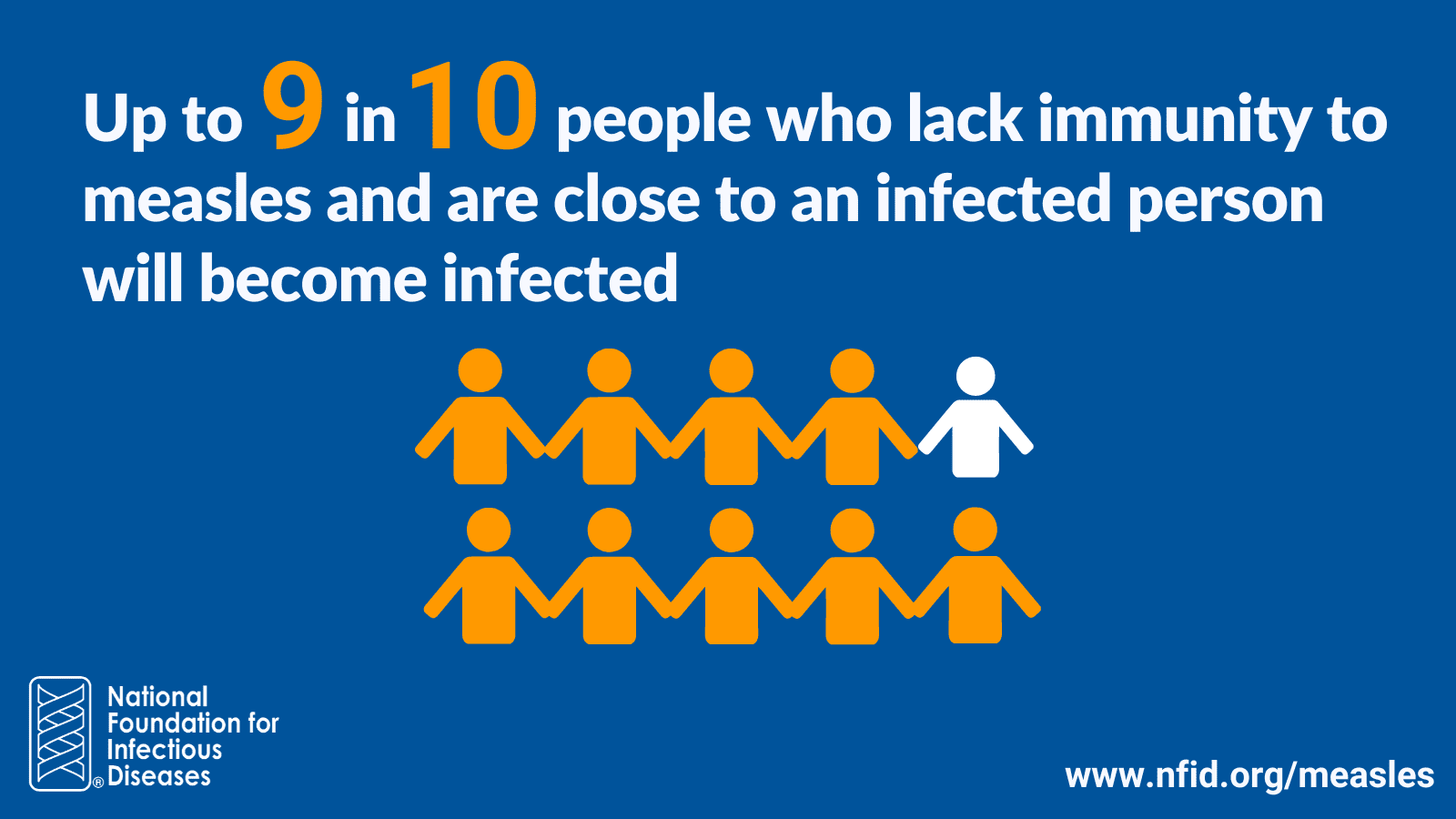
Measles can be serious:
- About 1 in 5 unvaccinated people in the US who get measles will be hospitalized (the risk is higher in children younger than age 5 years)
- 1 out of every 1,000 people with measles will develop brain swelling, which could lead to brain damage
- As many as 1 in 20 children with measles will get pneumonia
- 1-3 out of 1,000 people with measles will die, even with the best care
According to the Centers for Disease Control and Prevention (CDC), measles outbreaks occur in every region of the world. In the US, measles cases happen when:
- Travelers who get measles abroad bring it into the US
- Cases spread in US communities with pockets of unvaccinated people
In 2019, more than 1,200 cases of measles were confirmed in 31 states—the largest number of cases since measles was eliminated in the US in 2000. In 2024, 285 measles cases were reported in 31 US states and the District of Columbia.
| As of April 2025, a total of 800 confirmed measles cases have been reported in 24 US states, with 3 deaths (2 confirmed and 1 under investigation). 96% of those cases were among individuals who were unvaccinated or whose vaccination status was unknown.
The most important thing individuals can do to help protect themselves, their families, and their communities from measles is to make sure that everyone who can be vaccinated is up to date on measles vaccination. |
Symptoms
Measles symptoms include:
- Fever
- Cough
- Runny nose
- Eye irritation
- Rash
Children with measles often feel miserable and may miss school, with loss of appetite, diarrhea, and sensitivity to any light.
The rash usually appears about 14 days after a person is exposed. The rash spreads from the head to the trunk to the lower body. Patients who have compromised immune systems do not always develop a rash.
Prevention
Vaccination is the best protection from measles. The measles, mumps, rubella (MMR) vaccine is safe and effective.
In the US, 2 doses of the MMR vaccine are recommended for children. Infants normally get their first measles vaccine between 12-15 months followed by another dose between 4-6 years. However, CDC recommends that any infant as young as 6 months old who will be traveling internationally should get a vaccine before leaving the US, followed by 2 additional doses later.
Adolescents (preteens and teens) who were not previously vaccinated should get 2 doses (with at least 28 days between doses); those who only received 1 dose previously should receive a second dose.
All adults born in 1957 or later who have not been vaccinated or have not had measles should be vaccinated. Those vaccinated between 1963-1968 may have received a measles vaccine that was found to be less effective. If you are not sure whether you were vaccinated, it is safe to get another measles vaccine.
The only people who should not get measles vaccine are those who are immunocompromised or pregnant, or those who have had an allergic reaction to previous vaccine (rare, ~1 in a million). Talk with a trusted healthcare professional to find out if you should get vaccinated.
Treatment
There are no specific antiviral drugs approved to treat measles. The goal of medical care is to relieve symptoms and address complications such as bacterial infections. Severe measles cases among children who are hospitalized may be managed with vitamin A under the supervision of a healthcare professional to help reduce chances of death from measles. It is important to note that vitamin A should only be administered by a licensed healthcare professional after a measles diagnosis, as part of supportive care, not as a cure.
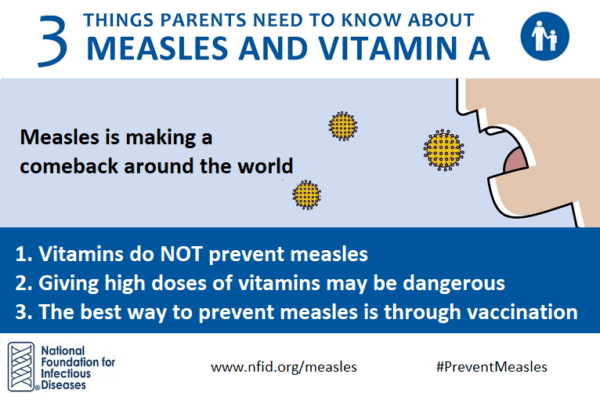
The best way to help protect against measles is to get vaccinated. Vitamins do not prevent measles.
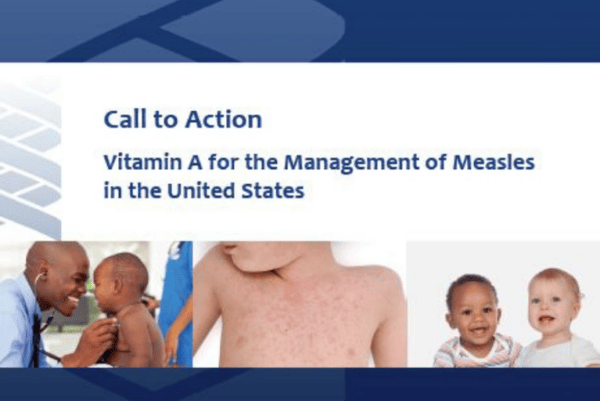
In 2019, the National Foundation for Infectious Diseases (NFID) convened a group of national experts to clarify the use of vitamin A in treating severe cases of measles. Since then, the World Health Organization, American Academy of Pediatrics, CDC, and NFID have aligned on using vitamin A for the management of children hospitalized with measles.
Updated April 2025
Source: Centers for Disease Control and Prevention (CDC)
Related Resources
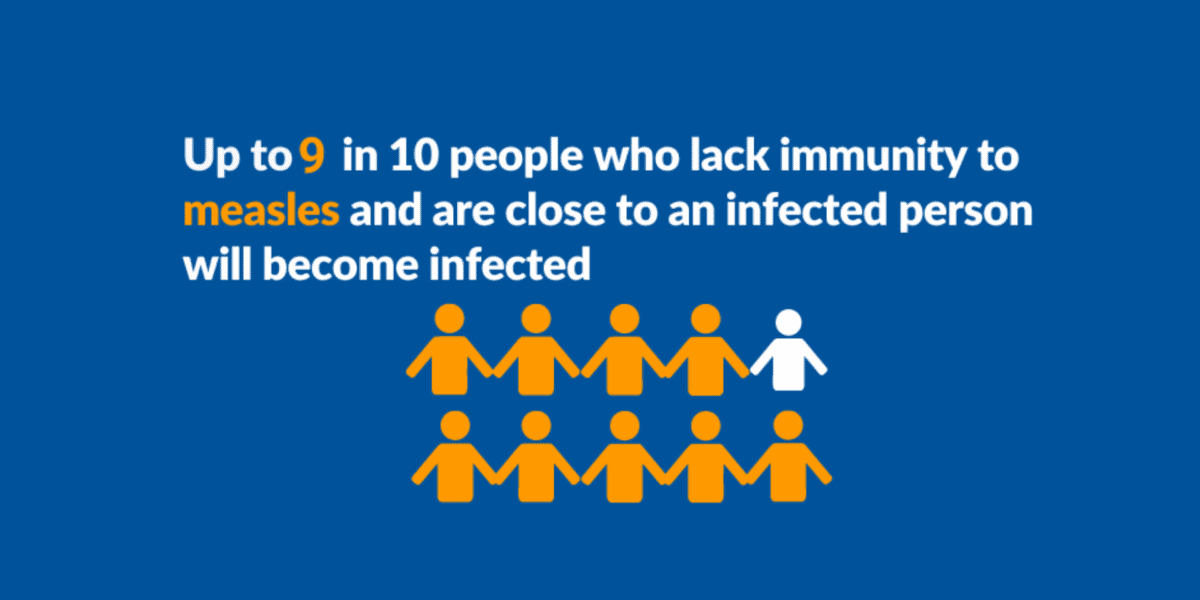
Frequently Asked Questions about Measles
Answers to common questions about measles, the most contagious virus known to humanity
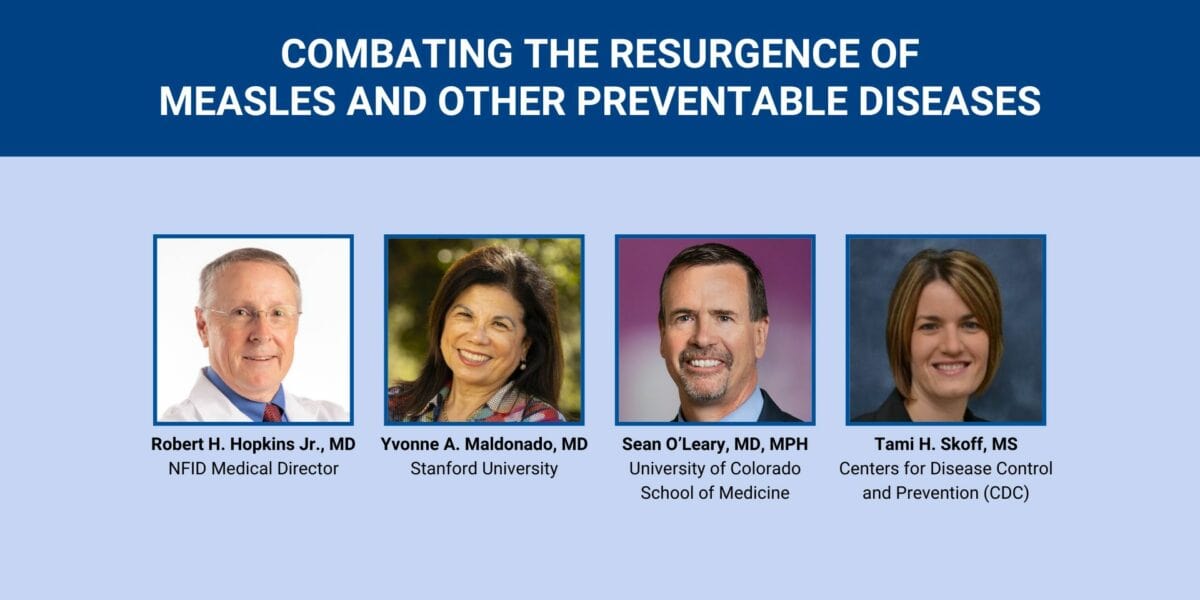
Combating the Resurgence of Measles and Other Preventable Diseases
In this recorded webinar, speakers address the resurgence of measles and other preventable diseases, with an interactive panel discussion featuring experts addressing US vaccine recommendations and effective strategies to reduce the burden of measles, pertussis, polio, and tuberculosis in the US …
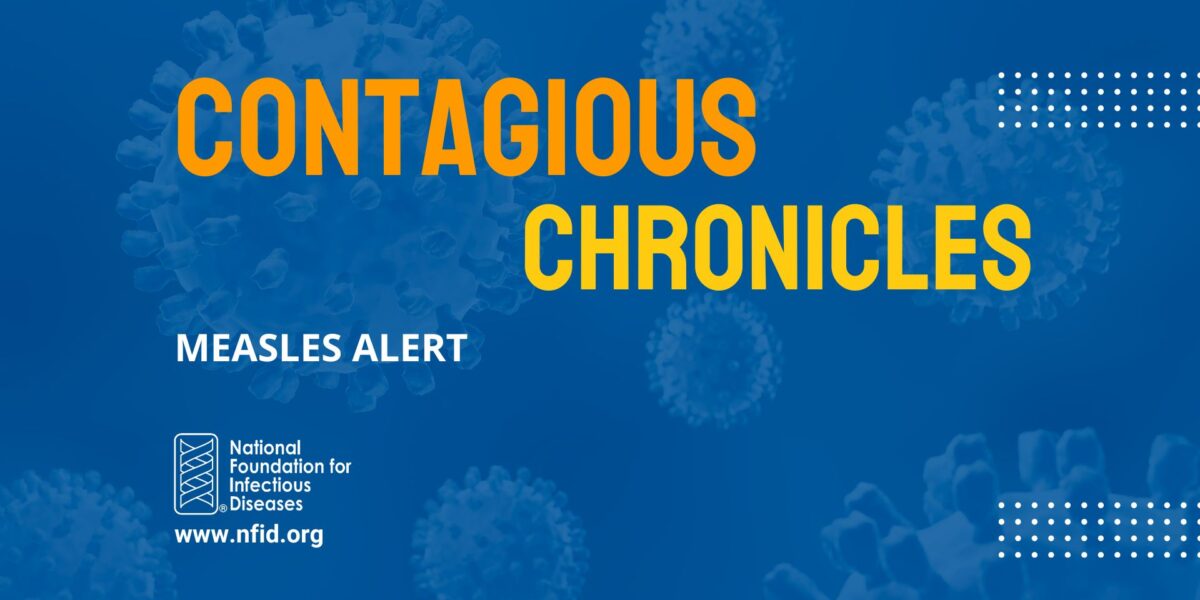
Measles Alert
In this episode, NFID experts offer insights on the recent increase in cases of measles, a highly contagious and potentially serious disease that is now making a comeback due to low vaccination rates in some communities …
Related Posts
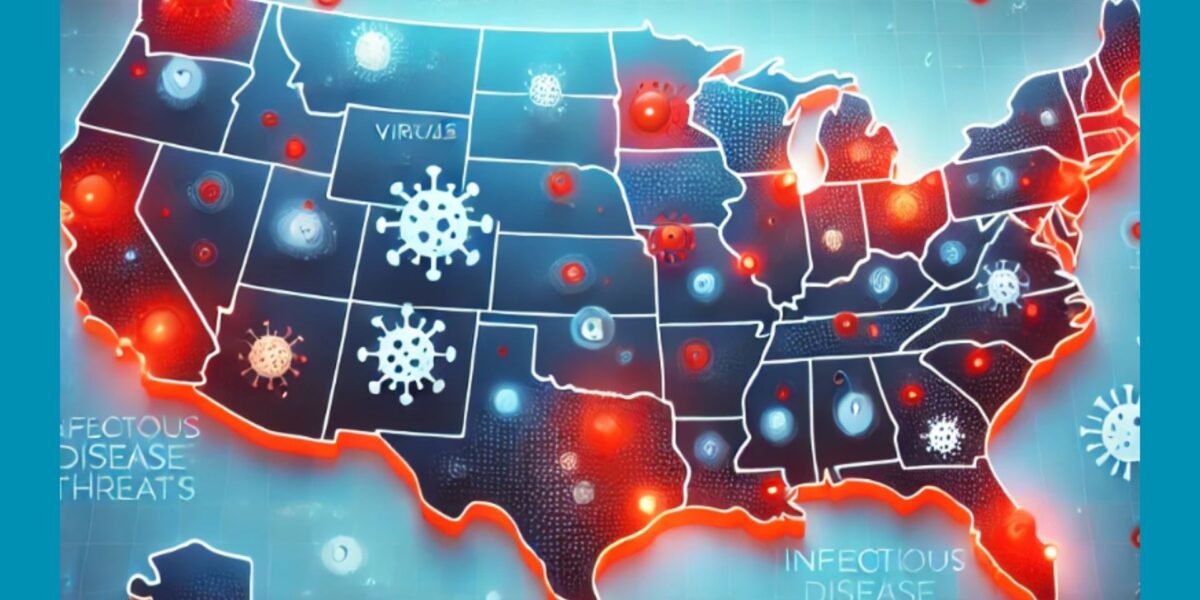
News Round-Up: Infectious Disease Threats
According to NFID website poll, there are several worrisome infectious disease threats. Read recent news on topics of greatest concern, including avian influenza (bird flu), measles, and respiratory syncytial virus (RSV) …

ID News of Interest: Bird Flu, Measles, and Meningococcal Disease
CDC issued health alerts on bird flu, measles, and meningococcal disease. Read the latest news including insights and explanations from infectious disease experts …
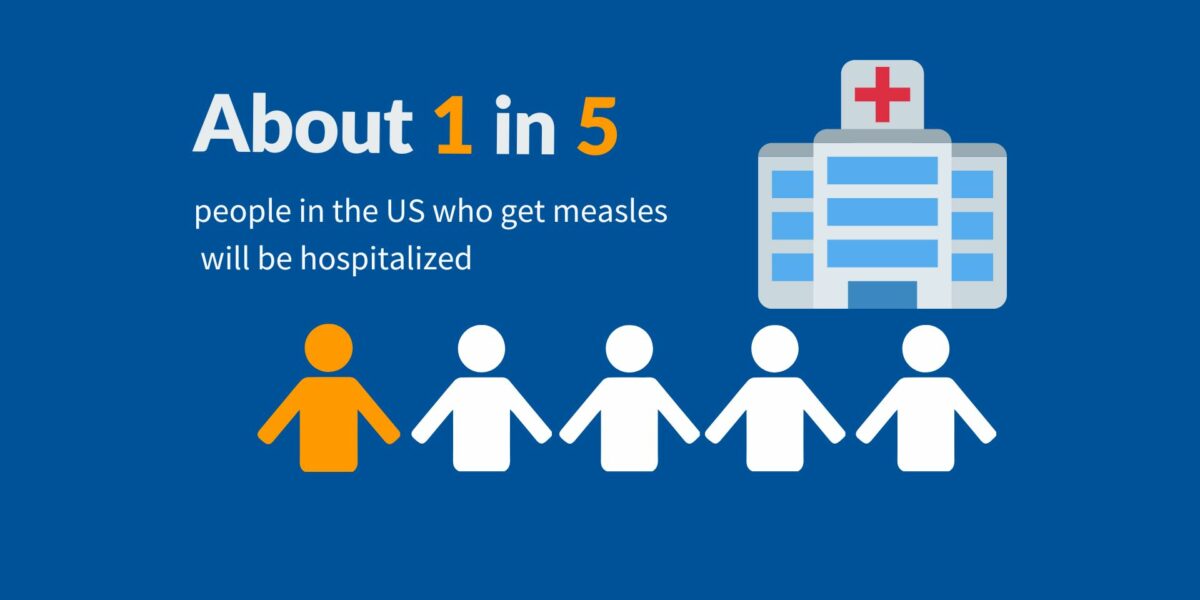
Experts Urge Vaccination as Measles Cases Rise
With measles cases on the rise across the US, experts at the National Foundation for Infectious Diseases (NFID) are urging the public to follow longstanding public health recommendations by making sure they are up to date on measles-mumps-rubella (MMR) vaccination
